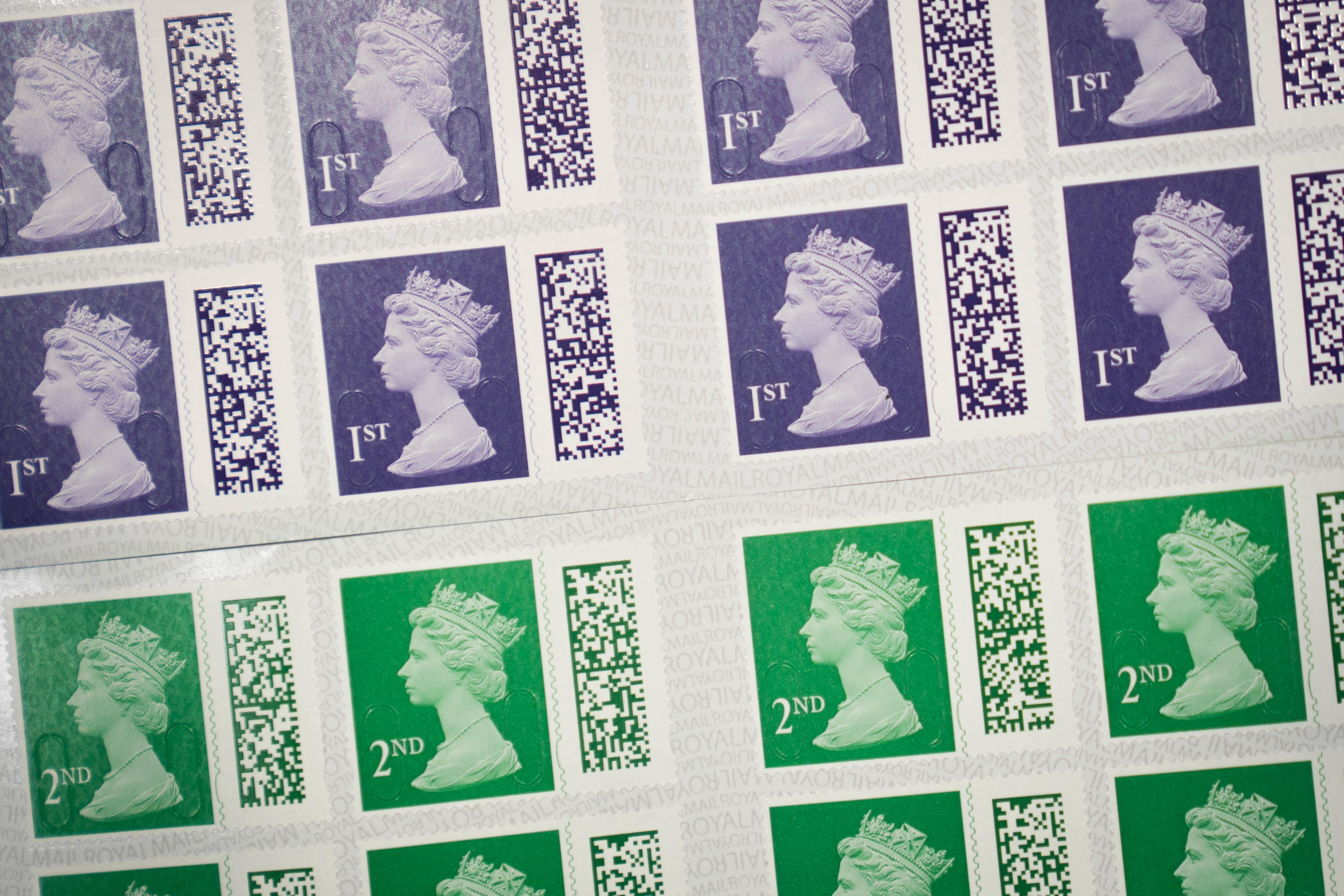Two-thirds of people think the increase in the price of a first-class stamp over the past five years is unfair, new data suggests.
The cost of a first-class stamp is set to reach £1.70 on Monday, more than double the 76p cost in 2020.
This latest 5p increase marks the eighth price hike in five years, a period during which Royal Mail has consistently failed to meet its annual delivery targets.
The rising costs are causing a significant financial strain for many, with one in three people surveyed admitting they would struggle to afford a book of eight first-class stamps, now priced at £13.60.
The poll, conducted for Citizens Advice, further highlights the impact on household budgets, with 16 per cent of respondents stating they would find it difficult to afford even a single first-class stamp at the new price.

With second-class stamps rising by 2p to 87p from Monday, almost a quarter of people (22 per cent) said they would struggle to buy a book of eight, now costing almost £7, with 9 per cent saying they would find it hard to afford a single second-class stamp.
However, the charity found that a third of those polled (32 per cent) had used a premium product, as opposed to a basic first or second-class stamp, to make sure an important letter or card arrived on time.
Regulator Ofcom is consulting on the Universal Service Obligation (USO) held by Royal Mail, which could see 2nd class letter deliveries reduced from six days a week to alternate weekdays.
Almost a third of people (29 per cent) said they would like Royal Mail to keep delivering 2nd class letters six days a week while 37 per cent said they could accept the reduction to alternate weekdays but only if the company met its delivery targets.
Get a free fractional share worth up to £100.
Capital at risk.
Terms and conditions apply.
Go to website
Get a free fractional share worth up to £100.
Capital at risk.
Terms and conditions apply.
Go to website
Ofcom is also considering relaxing Royal Mail’s annual delivery targets, which would mean 90 per cent of first-class mail would have to be delivered next-day, instead of the current 93 per cent target.
Under the plans, 95 per cent of second-class mail would need to be delivered within three days, instead of the current 98.5 per cent.
Some 86 per cent said they have received an important letter or document in the post in the last six months and half (50 per cent) have sent one.
Previous research by Citizens Advice suggests that an estimated 10.7 million people suffered delays to their post over Christmas, with 3.4 million of those missing vital letters for health appointments, bills, legal documents and fines.
Tom MacInnes, director of policy at Citizens Advice, said: “Royal Mail’s unfair price hikes are making post less affordable, and will hit low-income households and older people the hardest. People from these groups are more likely to be digitally excluded and rely on mail.
“These price increases are worsened by the fact people simply can’t rely on their first or second-class mail being delivered on time – proven by Royal Mail’s failure to meet any annual delivery targets for half a decade.
“Ofcom must act. The regulator is considering slashing deliveries and relaxing targets but these moves must go hand-in-hand with a curb on price increases. Otherwise, Royal Mail has no incentive, as a monopoly provider, to deliver the service consumers deserve.”
A Royal Mail spokeswoman said: “UK households on average spend less than £7 a year on stamps, and customers have the choice to post letters second class for just 87p nationwide or pay more if they want a next-day service.
“Royal Mail carefully considers prices and seeks to keep them as low as possible given the increasing cost of delivering mail.
“A complex and extensive network of trucks, planes and 85,000 posties is needed to deliver across the country for a single price.
“Ofcom has recognised that reform is urgently needed to protect the one-price-goes-anywhere universal service which requires Royal Mail to deliver letters to around 32 million UK addresses six days a week.”


